
IN MARCH, shortly before the state of California ordered its residents to shelter in place to slow the spread of the coronavirus, San Francisco State University shuttered its campus, forcing the university’s creative writing department to abruptly shift its courses online. For the better part of two months, writing professors at SFSU, like their peers at colleges and universities across the United States, had to learn on the f ly how to teach a writing workshop via Zoom to students hunkered down in their homes.
“It was a hard semester,” says Nona Caspers, director of the creative writing department at SFSU. “People lost students. I don’t mean they died, but they disappeared from their classes. We couldn’t find them. Not very many, and we really tried. I’m so proud of our university and of our faculty, but it was hard. We’re still in a weird place.”
Six months later, as universities gear up for fall, professors at SFSU and hundreds of other creative writing programs around the country still find themselves in that weird place. As of late July, just over half of U.S. universities planned to invite students back to campus for in-person classes this fall, according to a survey of more than twelve hundred schools by the Chronicle of Higher Education. In the survey, 10 percent of universities said they planned to go fully online, while nearly a third of schools were proposing a hybrid model, mixing in-person and online elements.
この記事は Poets & Writers Magazine の September - October 2020 版に掲載されています。
7 日間の Magzter GOLD 無料トライアルを開始して、何千もの厳選されたプレミアム ストーリー、9,000 以上の雑誌や新聞にアクセスしてください。
すでに購読者です ? サインイン
この記事は Poets & Writers Magazine の September - October 2020 版に掲載されています。
7 日間の Magzter GOLD 無料トライアルを開始して、何千もの厳選されたプレミアム ストーリー、9,000 以上の雑誌や新聞にアクセスしてください。
すでに購読者です? サインイン

Literary MagNet
When Greg Marshall began writing the essays that would become his memoir, Leg: The Story of a Limb and the Boy Who Grew From It (Abrams Press, June 2023), he wanted to explore growing up in Utah and what he calls \"the oddball occurrences in my oddball family.\" He says, \"I wanted to call the book Long-Term Side Effects of Accutane and pitch it as Six Feet Under meets The Wonder Years.\" But in 2014 he discovered his diagnosis of cerebral palsy, information his family had withheld from him for nearly thirty years, telling him he had \"tight tendons\" in his leg. This revelation shifted the focus of the project, which became an \"investigation into selfhood, uncovering the untold story of my body,\" says Marshall. Irreverent and playful, Leg reckons with disability, illness, queerness, and the process of understanding our families and ourselves.
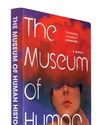
THE MEUSEUM OF HUMAN HISTORY
READING The Museum of Human History felt like listening to a great harmonic hum. After I finished it I found the hum lingering in my ears. Its echo continued for days.
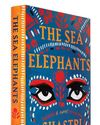
The Sea Elephants
SHASTRI Akella's poised, elegant debut, The Sea Elephants, is a bildungsroman of a young man who joins a street theater group in India after fleeing his father's violent disapproval, the death of his twin sisters, and his mother's unfathomable grief.
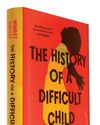
The History of a Difficult Child
MIHRET Sibhat's debut novel begins with God dumping rain on a small Ethiopian town as though. He were mad at somebody.
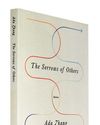
The Sorrows of Others
AS I read each story in Ada Zhang’s brilliant collection, The Sorrows of Others, within the first few paragraphs— sometimes the first few sentences— I felt I understood the characters intimately and profoundly, such that every choice they made, no matter how radical, ill-advised, or baffling to those around them, seemed inevitable and true to me.
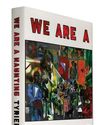
We Are a Haunting
TYRIEK White’s debut novel, We Are a Haunting, strikes me as both a love letter to New York City and a kind of elegy.

RADICAL ATTENTION
IN HER LATEST BOOK, THE LIGHT ROOM: ON ART AND CARE, PUBLISHED BY RIVERHEAD BOOKS IN JULY, KATE ZAMBRENO CELEBRATES THE ETHICAL WORK OF CAREGIVING, THE SMALL JOYS OF ORDINARY LIFE, AND AN ENGAGEMENT WITH THE NATURAL WORLD WITHIN HUMAN SPACES.

The Fine Print
HOW TO READ YOUR BOOK CONTRACT
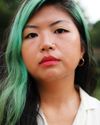
First
GINA CHUNG'S SEA CHANGE
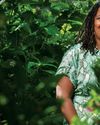
Blooming how she must
WITH ROOTS IN NATURE WRITING, ENVIRONMENTAL JUSTICE, POETRY, AND PHOTOGRAPHY, CAMILLE T. DUNGY'S NEW BOOK, SOIL: THE STORY OF A BLACK MOTHER'S GARDEN, DELVES INTO THE PERSONAL AND POLITICAL ACT OF CULTIVATING AND DIVERSIFYING A GARDEN OF HERBS, VEGETABLES, FLOWERS, AND OTHER PLANTS IN THE PREDOMINANTLY WHITE COMMUNITY OF FORT COLLINS, COLORADO.